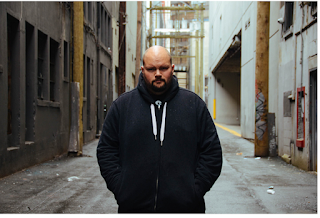A lot has been written about shrinking attention spans. How the internet and text messages have made people unwilling – maybe even unable - to sustain interest in anything lasting more than a few seconds. This may be true. It could also be blaming the victim.
I have said for years that the internet needs editors.
Electrons are essentially free, so there are few, if any, restrictions on the
length of an article or blog post. In newspapers and magazines, the amount of
space is finite and limited. You get a budget for your article and an editor
trims it to fit if you run long.
This forces writers to make decisions. How much detail
should I provide? How much history? Should I include this section at all? Now
too many people don’t seem to care if a story runs thousands of words; it’s not
like the internet will fill up.
It’s also common to blame the young for this lack of
attention, likely because it’s always fashionable to blame the young for
everything. I see it more as a demand to cut to the chase, as there are too
many competing demands on their time to spend too much of it wallowing in the
thousand words that will still be inadequate to describe a sunset.
I’m not young, but my reading tastes used to embrace
beautifully crafted sentences (think Chandler and James Lee Burke). Now that
I’ve become exposed to writers like Dashiell Hammett and George V. Higgins, I
have much less patience with rhapsodic waxing.
A story or article should never have more words than it
needs; this number varies by author and style of writing. That said, I recently
read a book by a respected author I like and couldn’t help but try to edit the
book in my head. “Here are three sentences when only one was needed.” “Wa-a-ay
more backstory than we need on this character.” “He’s riding a horse. We don’t
need the entire history of the ranch.”
Conscious of this, I try to keep blog posts between 600 and
800 words. (Interviews often run a little longer.) That’s not because I’m lazy
(I am admittedly quite lazy), but an attempt to be considerate of my readers,
who have plenty else vying for their attention. It’s actually more work, as I
often cut as much as 25% from a piece, which brings to mind Mark Twain’s famous
comment, “I’m sorry this letter is so long, but I didn’t have time to write a
shorter one.” I take the time, which is one of the reasons I’ve trimmed this
blog to once a week. (The first draft of this post was 708 words. The final is 627,
and it’s a better post because of it.)
No better writing advice exists than that of Elmore Leonard:
leave out the parts people tend to skip. What writers don’t do often enough is
wonder why people skip them. The default is to cite the diminished attention
span, though it’s just as likely the author included excessive description, over-explained
something, or just plain wasn’t all that interesting.
Several years ago The Beloved Spouse™ and I had lunch with
The Sole Heir and her then boyfriend, now The Sole Son-in-Law. TSH told a
lovely story that flitted from point to point and person to person like a bee
collecting pollen. This put me in mind of a story I then told in my own style,
which led the boyfriend/SSIL to face TSH and say, “Now that’s how you
tell a fucking story.” I have few fonder memories as a storyteller.
Always be sensitive to your audience. Maybe their attention
spans are too short. Or maybe they have higher standards for what holds
their attention than you’re writing for.



